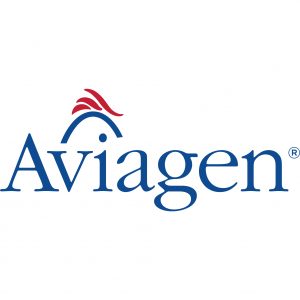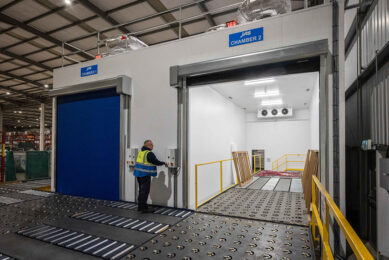Contribution of genetic improvement to the sustainability of poultry production
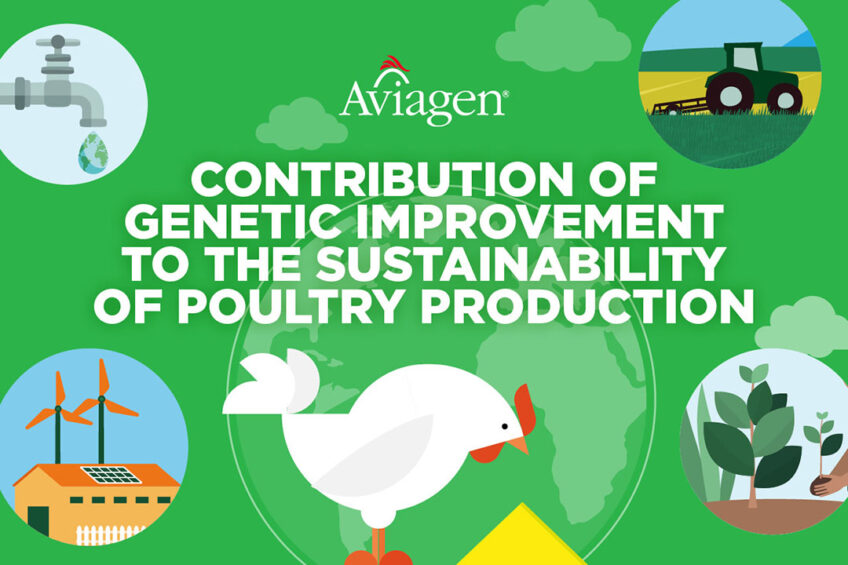
On June 23, Tim Burnside, Aviagen Group Global Manager Welfare, Sustainability & Compliance, participated in a Poultry World webinar on Sustainable Poultry Farming. The topic of his discussion was “the contribution of genetic improvement to the sustainability of poultry production.” In this article you will find a summary of the key points.
Aviagen is committed to the Environmental, Economic and Social pillars of sustainability, and our Top 5 corporate commitments are in sync with the United Nations’ Sustainable Development Goals (SDGs) prioritised by the International Poultry Council (IPC). These are Zero Hunger; Good Health and Well-being; Quality Education; Industry Innovation and Infrastructure; and Climate Action. Aviagen makes a valuable contribution to these priority SDGs through Breeding for Welfare and Sustainability.
The challenge: Carbon cost of food production
Food production currently contributes 26% of the 52.3 billion tonnes of carbon dioxide equivalent emitted annually, and 31% of this emission comes from livestock farming. Thus, our efforts to boost efficiency at those two levels have a direct impact on the environmental sustainability of food production globally.
When we look at the total carbon footprint of food production, we see that poultry contributes only 6%, and that is a great value proposition that poultry offers to the cause of sustainability.
Amino acid evaluation
An interesting focus to consider is the ratio of the essential amino acid contribution to the carbon emission of poultry. Essential amino acids are key to human nutrition as they are not produced by the body and must be supplied by our diet. In a carbon-cost/amino-acid benefit analysis, chicken meat compares favourably, emitting 92 grams of CO2 per 1 gram of essential amino acids. This ratio is similar to tofu and soymilk.
FCR: The sustainability driver
A key driver of both economic and environmental sustainability is Feed Conversion Ratio, or FCR. The FCR advantage is that less feed is required to grow birds to the same weight. Global conflicts, inflation, supply chain issues…numerous factors are causing a high volatility in raw feed material pricing, and poultry producers are feeling the pain, making FCR improvement more important than ever. We are seeing an FCR reduction of about 1.5 points per year since the 1970s, which decreases the carbon footprint of poultry production at 1% per year, also reducing the burden on natural resources such as land and water.
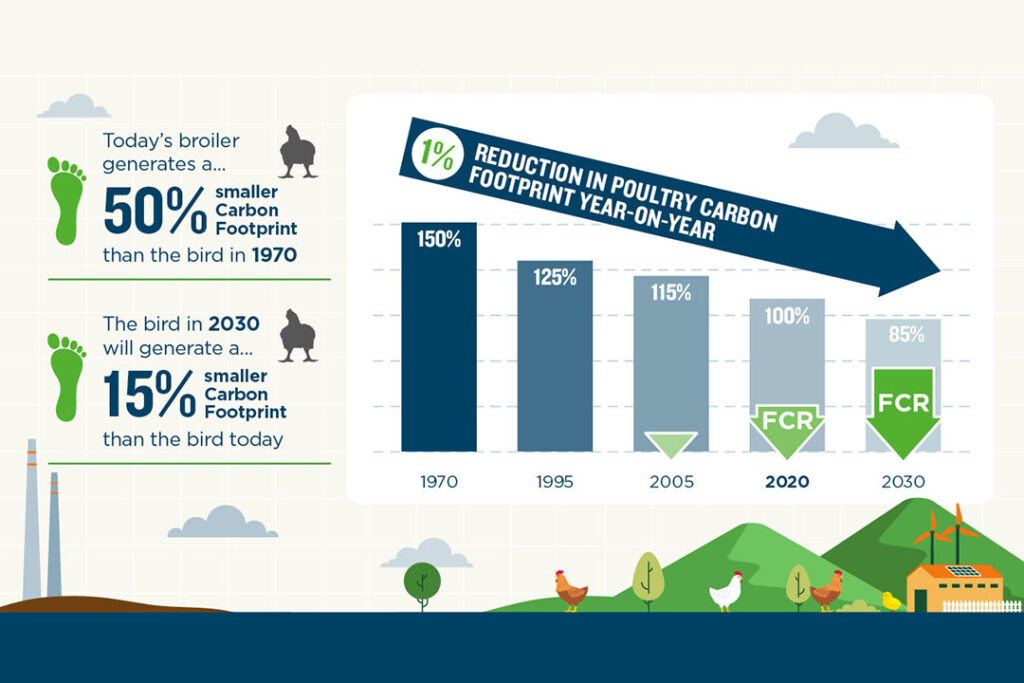
As a practical example, taken from a study by Van Emous and Vermeij (2021), 1.5 points of FCR improvement have brought a yearly 9,000-tonne feed saving to Dutch poultry production. The ripple effect is that the approx.1,360 hectares of land needed to grow the feed and 16 million litres of water the birds would have drunk are also conserved. Similarly, looking at the European Union, 225,900 tonnes of feed, 44,000 hectares of land, and 400 million litres of water are preserved. Environmental sustainability is amplified at the global level, with nearly 3 million tonnes of feed conservation, sparing over 600,000 hectares of land, and conserving 5,100 million litres of water. It is important to remember that these savings are cumulative year on year so each saving adds to the one of the year before, so in two years, they will double, and this trend will continue into the future.
Environmental consideration of soy
Feed is the biggest contributor to greenhouse gases from poultry, accounting for 78% of yearly greenhouse gas emissions – 57% is from the production of the feed and the remaining 21% comes from Land Use Change associated with soy.
Global growth in the production of soy has been, and continues to be, a major contributor to Land Use Change (the conversion of an area of land from one use to another, such as from forest to farm land). Latin America is the world’s largest soybean producer, accounting for 37% of the world’s exports. The issue is that soy from Latin America is assumed to be produced on land coming from the Amazon biosphere. Thus, soy from Latin America carries a high land use change penalty due to the link with deforestation.
Ongoing research for our customers
A Top 5 Aviagen commitment is “Transparency, communication and engagement.” Through research and development and field trials, we continually update our knowledge and pass our findings on to our customers to benefit their operations. For this reason, we recently conducted a field trial to answer the question for our customers: if we move away from soy for environmental sustainability reasons, does this have an impact on bird performance? What we found is that our broilers perform well on soy-free diets, with good growth rates, FCR, meat yield, livability and health. What’s more, the removal of soybean meal brings about a 65% lowering in carbon footprint (per kg lightweight) due to a reduction of land-use change. On the downside, soy-free diets may be more expensive to producers. Our commitment as a primary breeder is to help position our customers for success by equipping them with knowledge that is grounded in field research, enabling them to make informed decisions.
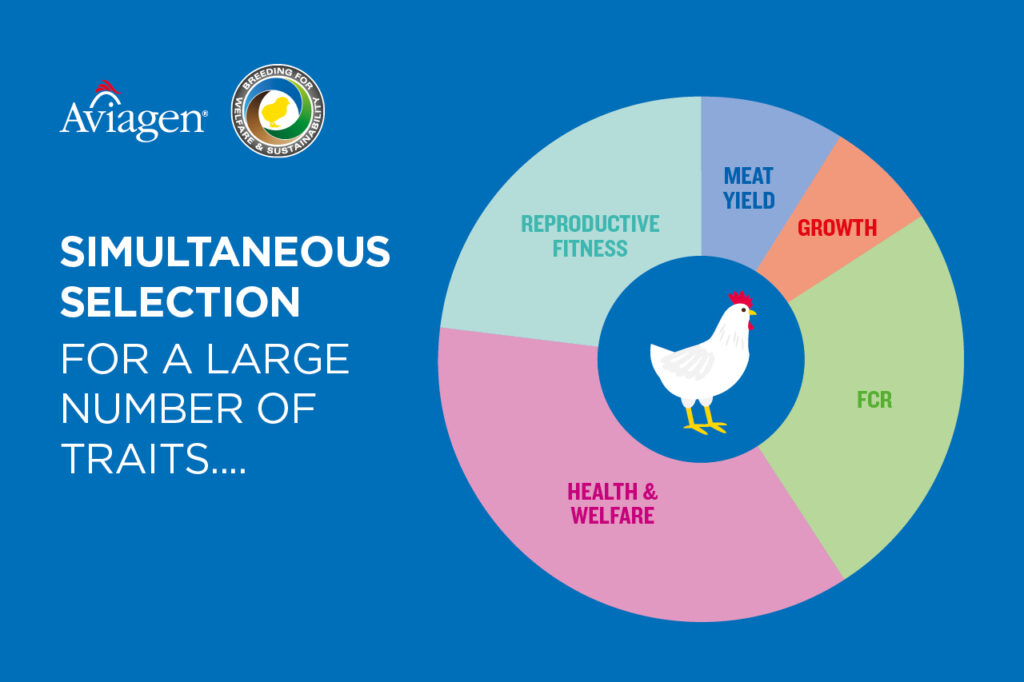
Balanced breeding for sustainability of the planet and its people
As a global primary breeding company, Aviagen recognises the need to find a balance between meeting an increasing demand for nutritious poultry meat while conserving natural resources and reducing the environmental impact of livestock production. Through a balanced breeding approach, we can provide continuous genetic improvement, and at the same time reduce the environmental footprint of poultry production and its impact on climate change.


